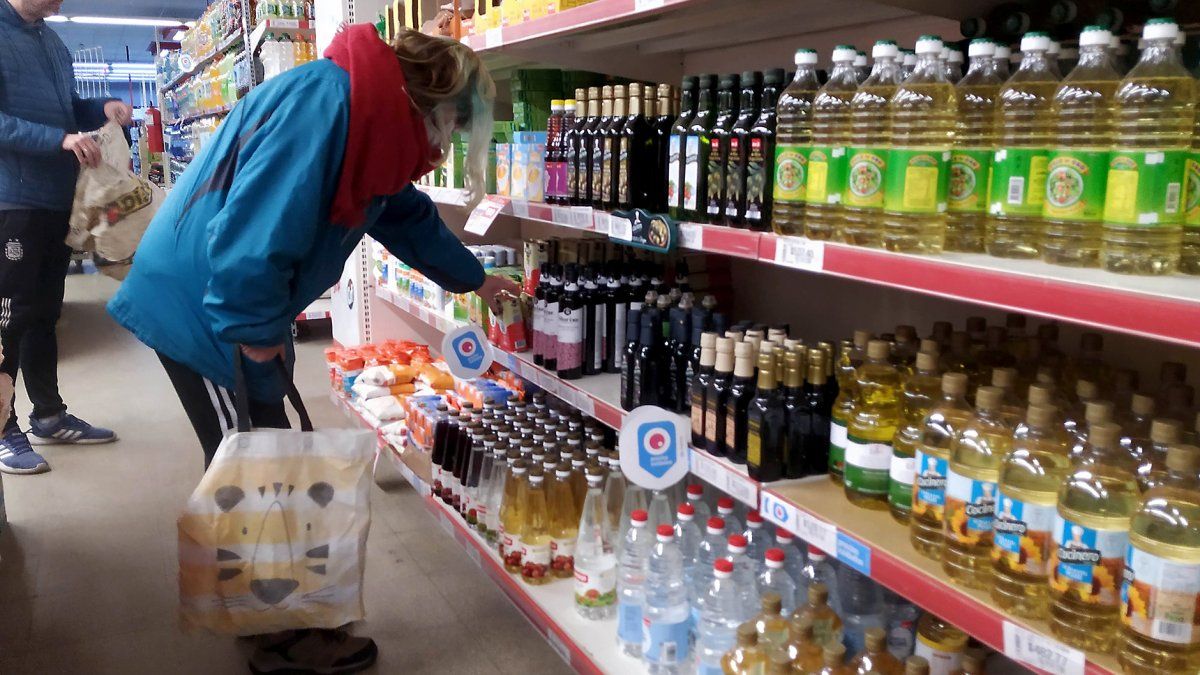electronics
The management of the agreements was in charge of the Secretary of Commerce, Matías Tombolini. The first is the one that was closed with the businessmen of Tierra del Fuego, gathered in Afarte. Is that The Now 30 agreement, which allows consumption with 30 installments at a rate of 48%, implies that the products must maintain the price during the 90 days that the program lasts. These are: refrigerators, washing machines, cell phones, air conditioners and televisions, which will be in more than 1,700 points of sale. The case of computers was left out because they do not have local production.
Within the Government they appropriate the motto “Give in to Grow” from the IDEA colloquium and ensure that the price agreement will work as it is Care Prices. The manufacturing companies propose which products will enter, and then the points of sale choose which ones to sell. In both cases, they must “give in” to comply with the agreed price, during the 90 days, if they want to have the installments. The prices of the artifacts will be between $70 thousand and the cap will be $200 thousanddepending on the product.
Although they assure that the negotiation was “rough”: the dollar moves every month, so there will be an increase in costs for companies, but there will also be an increase in sales, estimated at 500 thousand units. Others that “give in” will be the banks: the program could run out when the $100 billion they will put to finance the rate subsidy is finished, which is 30 points below the market. They assure that it was achieved due to the “good dialogue” of Massa with the financial sector. “The fiscal cost for the State of this is zero”, they clarify within the Government.
price table
Every day at 8:45 in the morning at the Secretary of Commerce there is a meeting called “price table”, which lasts 30 minutes, where prices are monitored in real time, non-compliers are contacted by telephone and progress is being made throughout the inspection process that will be carried out that day, with more than 150 outings to relieve compliance with the agreements. In addition, Tombolini will add consumer associations and municipalities to the surveys.
Although close to Massa they clarify that their view is not to “freeze and fine”, they assure that the agreements that are signed voluntarily are to be fulfilled. In fact, after the million-dollar fines applied last week to supermarkets, In the next few days, five new fines will be published for mass consumption manufacturers for misleading labels.
In addition, there will be more agreements. On the one hand, there will be Fair Prices, in which they will seek to have 2,500 mass consumption products that maintain their price for between 90 and 120 days, and that coexist with Care Prices. Despite the refusal of the companies to include the price in the packaging, in Commerce they trust that there are products in which it could be done. The plan could be in stages: launch with 1,000 and then add more. For manufacturers to join, there are several alternatives on the table that companies have requested: or define some differential exchange rate for exports or some tax benefit.
The Government seeks to “compensate” part of the effort, but they also admit: “We are synthesizing the proposals, but the companies also accumulated profits much faster than wages increased. It is enough to look at the balances or the participation of wages in income”told an official source.
For this reason, another of the sectors with which agreement will be sought is with textiles. In Commerce they assure that the agreement on the price of clothing is fulfilled in the shopping malls by 85%, but that the Indec reveals much more than shopping malls, for which agreement will be sought with the first part of the chain: spinning, a “concentrated” sector, as they say. The negotiation is with the Federation of Textile Industries (FITA). Clothing and footwear rose 118% in the last year, 35 points above inflation. Otherwise, opening imports is also an option.
As for medicines, the agreement signed with the laboratories remains in force, so that they increase below inflation. Commerce looks favorably on compliance, and in November they will analyze how it continues.
Source: Ambito
David William is a talented author who has made a name for himself in the world of writing. He is a professional author who writes on a wide range of topics, from general interest to opinion news. David is currently working as a writer at 24 hours worlds where he brings his unique perspective and in-depth research to his articles, making them both informative and engaging.




